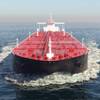Chief Engineer Pleads Guilty to Concealing Deliberate Pollution
Frank Coe, the former chief engineer of the M/V Fidelio (renamed the M/V Patriot) pleaded guilty to conspiracy and violating the Act to Prevent Pollution from Ships (APPS) before U.S. District Judge William M. Nickerson. Coe was employed by Pacific Gulf Marine Inc. (PGM), a vessel operator based in Gretna, La., that previously pleaded guilty to its role in deliberately discharging hundreds of thousands of gallons of oil-contaminated bilge waste from four of its giant car-carrier ships, including the Fidelio. PGM was sentenced on Jan. 24, 2007, to pay $1 million in criminal fines and $500,000 in community service, and serve three years of probation under the terms of an environmental compliance plan which will be audited by a court-appointed monitor.
During a March 29, 2003, inspection, Coast Guard inspectors in Baltimore lifted a deckplate and found a permanently installed bypass pipe on the Fidelio that was part of the ship's original construction. The Coast Guard directed the removal of the bypass pipe - referred to by some in the maritime industry as a "magic pipe" - and found that it was filled with black oil, according to a factual statement filed in court. Coe was the Chief Engineer of the ship on that day and falsely denied any knowledge of the existence or use of the bypass although it had been used since 1998. The ship's oil record book, a required log in which all overboard discharges must be recorded, had been falsified to conceal illegal discharges made without the use of an oily water separator, a required pollution prevention device that Coe admitted was "rarely if ever used." Coe also continued to bypass the oily water separator using a new bypass method after the Coast Guard discovered and removed the bypass pipe, according to papers filed in court.
Engine room operations on board large ocean-going vessels generate large amounts of waste oil and oil-contaminated bilge waste. International and U.S. law prohibit the discharge of waste containing more than 15 parts per million oil and without treatment by an oil water separator and oil sensing equipment. The regime, established by the MARPOL Convention (Annex I) - a treaty signed by more than 135 countries representing approximately 97.5% of the world's commercial tonnage and implemented into U.S. law by the APPS - also requires that overboard discharges be recorded in an oil record book.
Coe is the third chief engineer to plead guilty in the continuing investigation. Deniz Sharpe, who served as chief engineer of the M/V Fidelio after Coe, pleaded guilty on March 7, 2007, to violating the APPS involving continuing illegal conduct after the Coast Guard had removed the bypass pipe from the ship. Stephen Karas, the former chief engineer of the M/V Tanabata (renamed the M/V Resolve) pleaded guilty to conspiracy and making false statements on March 29, 2007. Another chief engineer of the Tanabata remains under indictment and the investigation is continuing. An indictment represents allegations brought by a grand jury. Defendants are presumed innocent unless and until proven guilty.












